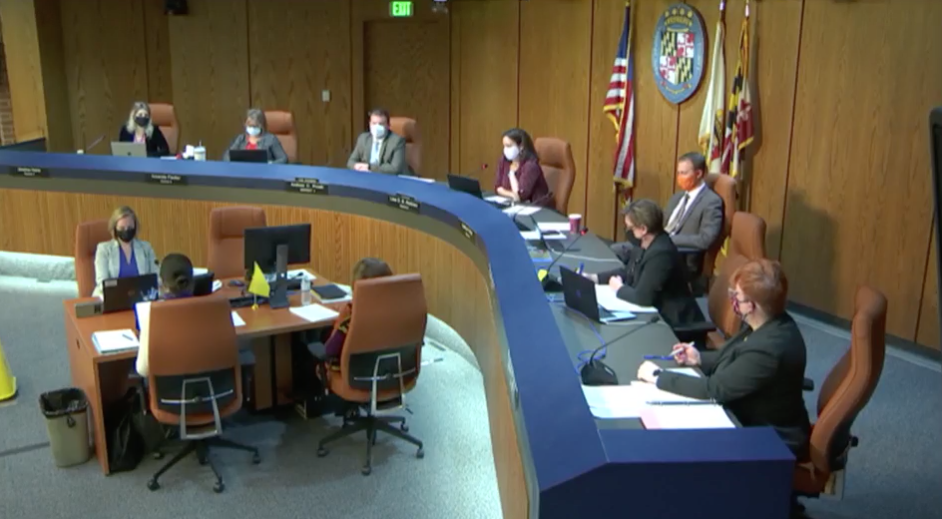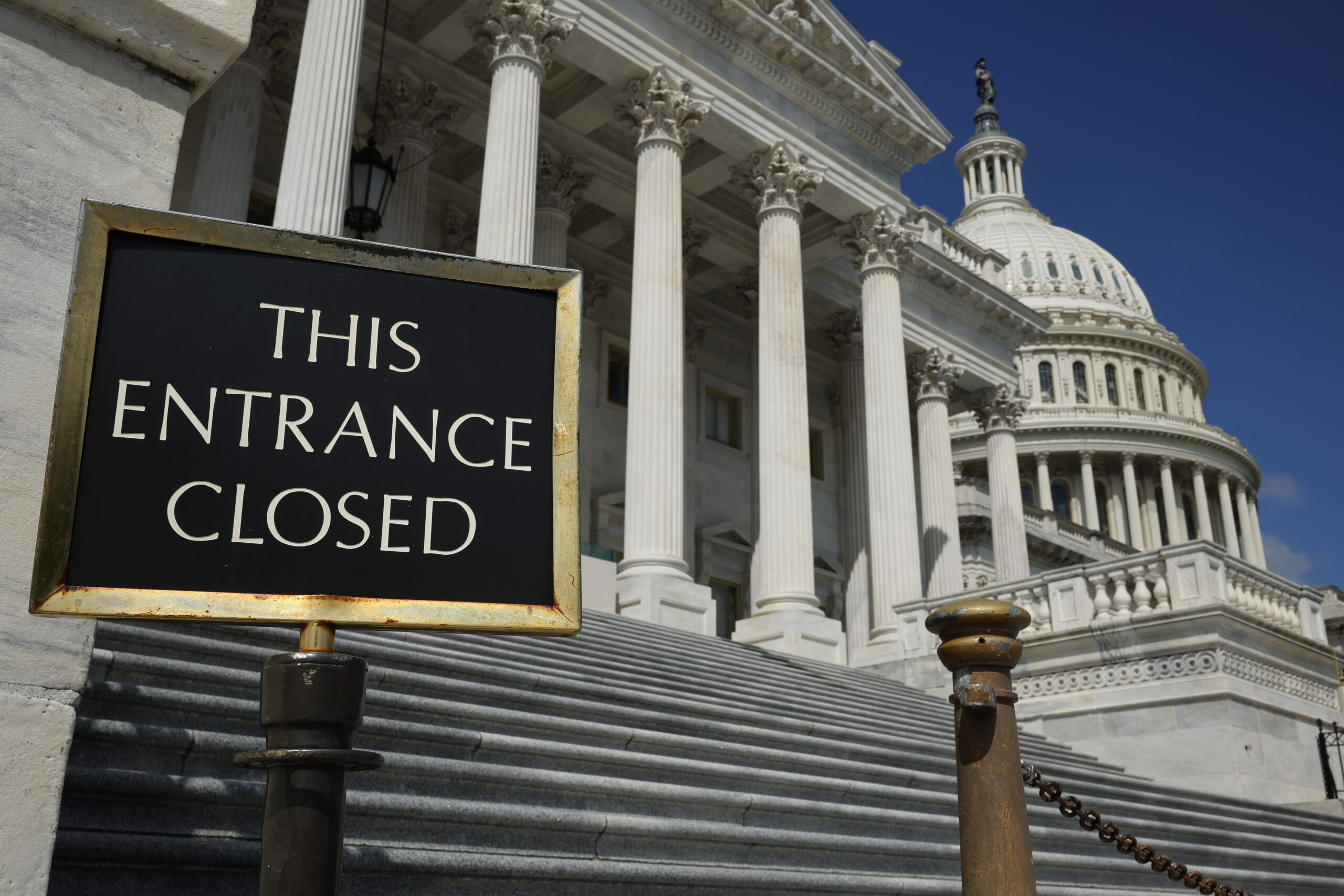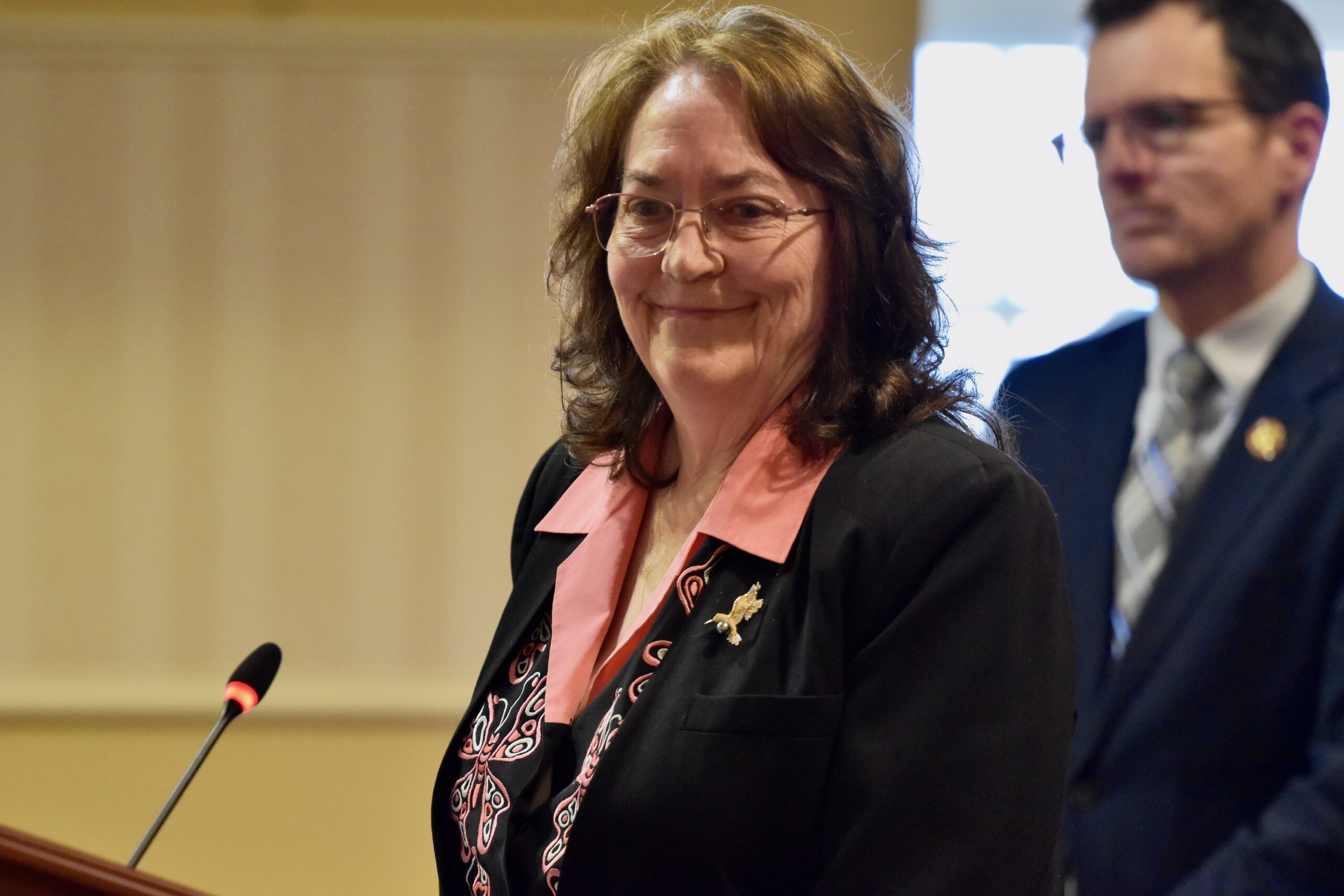Anne Arundel County Public Campaign Finance Effort Rejected; Howard County Fixes Technicality

Republicans on the Anne Arundel County Council on Monday blocked a charter amendment that, if approved by voters, would have set up a public campaign financing system in the county.
A resolution introduced by Council Chair Lisa Rodvien (D) on behalf of County Executive Steuart Pittman Jr. (D) would have allowed the creation of a public campaign financing system in the county. Because the legislation is a proposed charter amendment, the ultimate question of whether to set up the system would have been up to county voters on the November ballot.
The program would have been available for county council or county executive candidates, or both, according to the resolution. If approved by voters, the exact details of the public campaign financing system would’ve been hashed out by a commission and subject to final approval by the county council.
The proposed charter amendment needed five votes to pass, but the council was split along party lines. The four Democratic members voted for the resolution, and the three Republican members voted against it.
County Councilmember Nathan E. Volke (R) questioned sending the issue to voters before knowing how much the program would cost the county.
“I think the problem for me is: ‘Hey, you passed this, great. But what’s the price tag?’” Volke said.
Peter Baron, Pittman’s director of government relations, said he didn’t have an exact figure on how much a public campaign financing program would cost in Anne Arundel County, but argued the benefits outweighed the potential costs.
“It’ll cost a significant amount of money,” Baron said. “But what you get in our opinion is better government and a more representative government, and that has value too.”
Jared DeMarinis, the director of the Maryland State Board of Elections Candidacy and Campaign Finance Division, said cost figures vary among Maryland counties that have already enacted the program. He noted that Montgomery County set up an $11 million public campaign financing program for the 2018 elections, but didn’t spend that full amount. Baron estimated the cost would be less for Anne Arundel County.
Proponents of public campaign finance systems, including Democratic members of the county council, say those programs make it easier for new candidates, as well as women and people of color, to get elected by providing match funding for smaller donations.
“We are overrepresented in the number of women on this body, which I have a little bit of pride in, but we are white,” Rodvien said before the vote. “We have seven white members and that is not a reflection of our county.”
Several other jurisdictions in Maryland have public campaign finance programs: Montgomery County was the first to set up a program in 2014 and Baltimore City, Howard and Prince George’s counties have all since adopted their own programs. Baltimore County Council members approved a fair election fund in December, although that program includes spending caps for participating candidates.
Public campaign finance systems in other Maryland jurisdictions allow candidates to opt in and generally bar participating candidates from taking money from large donors, corporations and political action committees.
“One of the most important aspects of public campaign financing programs is that, particularly when campaigns are getting vastly more expensive each cycle, they allow regular people to run on the power of their ideas instead of having to rely on wealthy interests,” Anne Arundel County resident Morgan Drayton, the policy and engagement manager for Common Cause Maryland, said at a public hearing before the vote.
Abby Root of the Anne Arundel County League of Women Voters said public campaign financing would “level the playing field for candidates who may not have big donors.”
Anne Arundel County resident Kurt Svendsen said he supports the “general idea” of the resolution, but said the county’s decennial Charter Revision Commission should have reviewed it. That panel is “responsible for conducting a comprehensive study of the County government and recommending revisions to the Charter as necessary,” according to the county’s website.
“There are a number of significant matters, not the least of which is the idea of having a commission calculate an annual amount necessary to support such a system and requiring that amount be included in the budget ordinance,” Svendsen said.
After the vote, Common Cause Maryland tweeted that the rejection was a “slight setback but not the end.”
Howard County Fixes Public Finance Technicality
The Howard County Council unanimously voted Monday to remove a technicality from the county’s public campaign financing system that fair elections advocates said would disincentivize participation in the program.
The county’s public campaign finance law requires an election be contested for a candidate to receive matching public funds. But a provision removed by county council members via emergency legislation at a Monday meeting stipulated that “whether an election is contested shall be decided on the first Tuesday in August preceding an election.”
County officials interpreted that provision to apply to both primary and general elections, leading to County Councilmember Deb Jung (D) — who didn’t get a primary challenger until December — being denied matching funds. The removed provision would’ve required Jung to have a primary challenger by Aug. 3, 2021 for the June 28, 2022 primary in order to receive matching funds.
All five Howard County Council members sponsored the emergency bill. Chair Opel Jones (D) also co-sponsored the legislation on behalf of County Executive Calvin B. Ball III (D).
Howard County’s Citizens Election Fund is matched on a tiered basis that prioritizes smaller donations. County council candidates who participate receive $5 for every $1 of the first $50 of a donation, $3 for every $1 of the second $50, $1 for every $1 of the third $50, and no matching funds for the rest of qualifying donations.
A $50 qualifying donation, for example, would be eligible for $250 in matching funds. A $150 donation would garner the same $450 in matching funds as the maximum $250 donations. Jung has qualified to receive more than $43,000 in matching funds, according to campaign finance documents.
Jung thanked county residents who urged county council members to make the change.
“It is our Howard County residents who made tonight happen,” Jung said.
Councilmember Christiana M. Rigby (D) defended the county finance department’s decision to not release matching funds to Jung over the technicality. Rigby noted that the county’s Citizens Election Fund Commission recommended the change to county council members in October, but said the earliest chance to make the change was in January.
“I believe the Department of Finance acted correctly in following the law,” Rigby said. “Our county departments should follow the laws as they are written. If laws need to be fixed, it is our responsibility as the legislative branch to fix it.”




 Creative Commons Attribution
Creative Commons Attribution